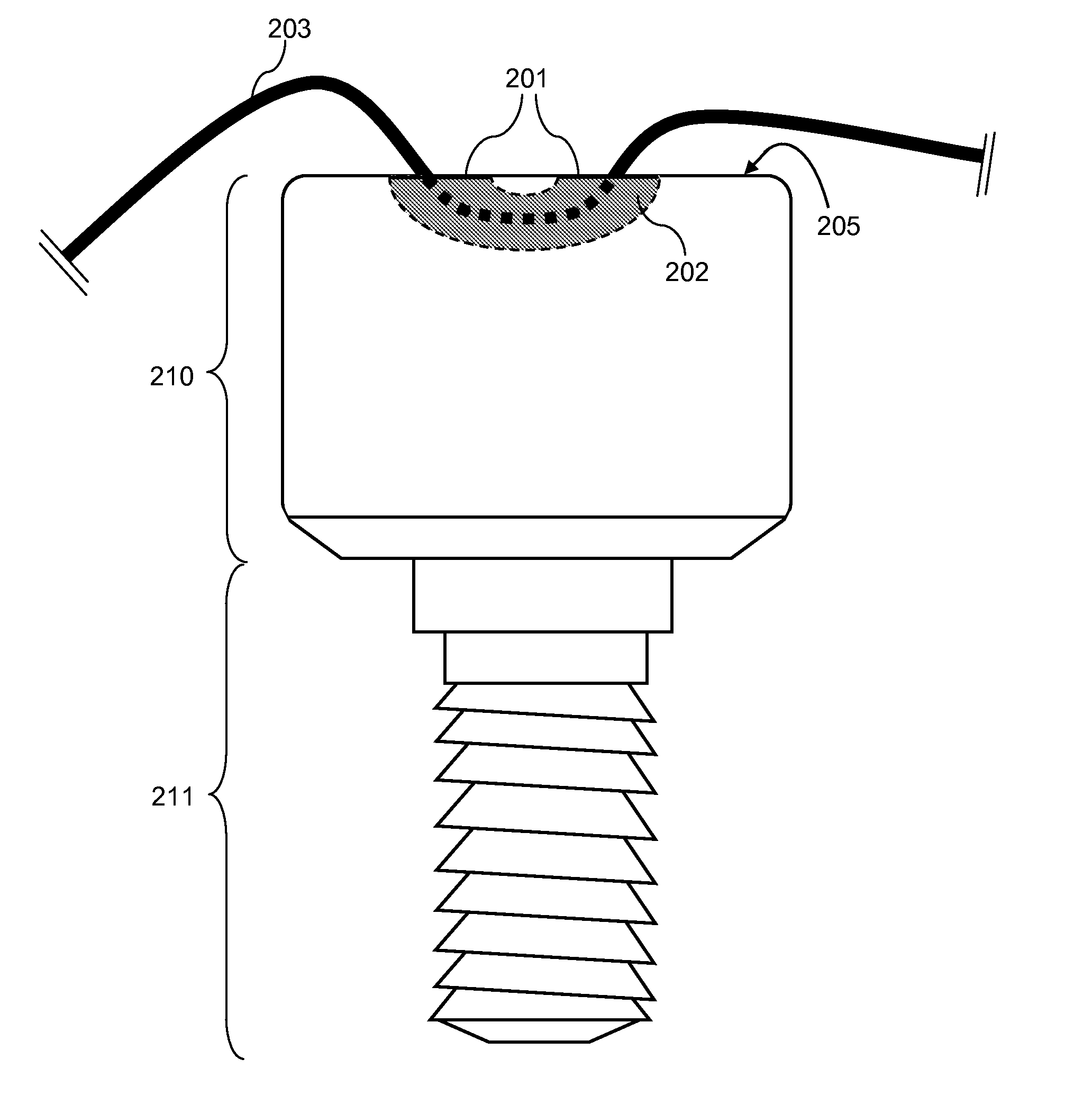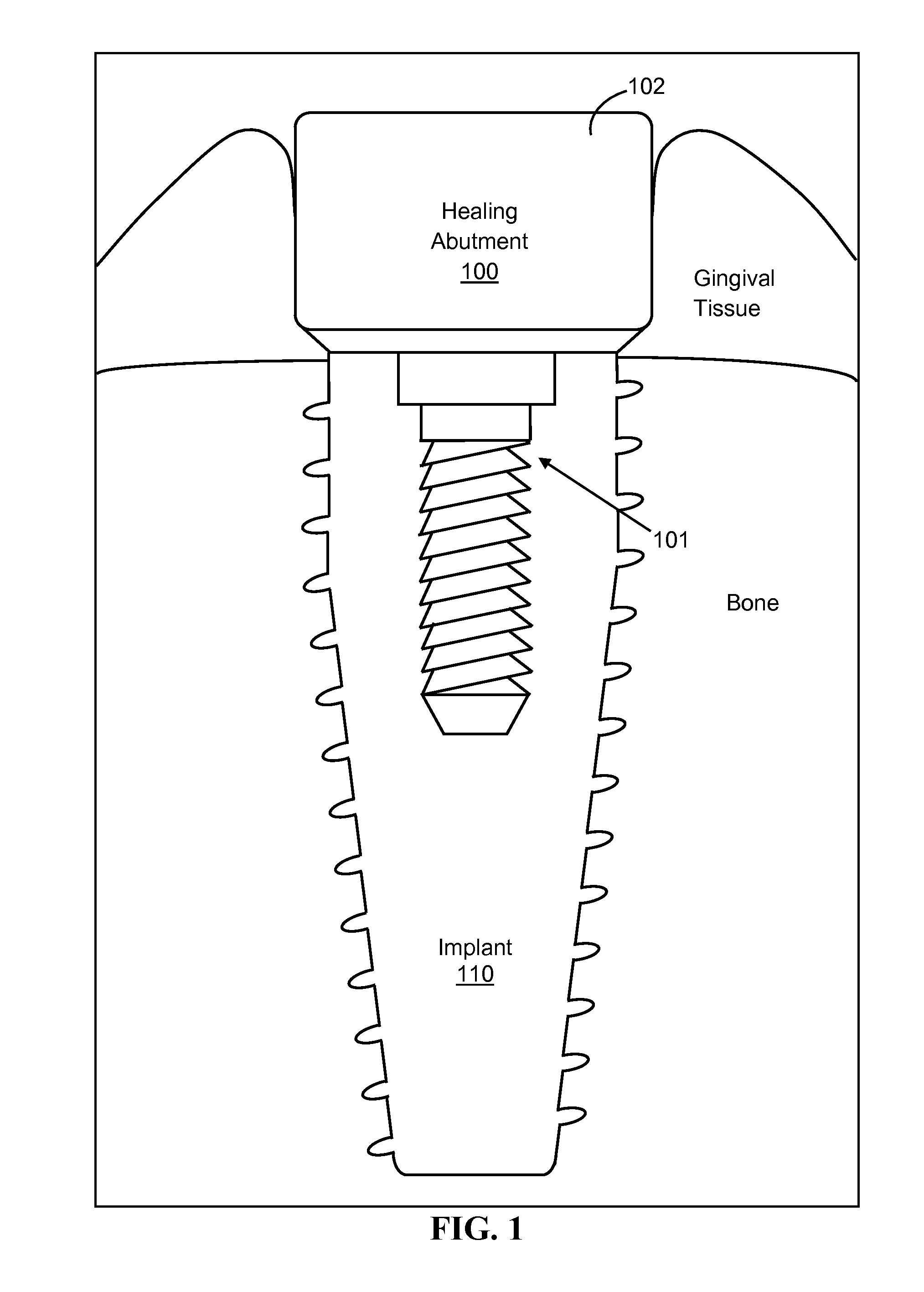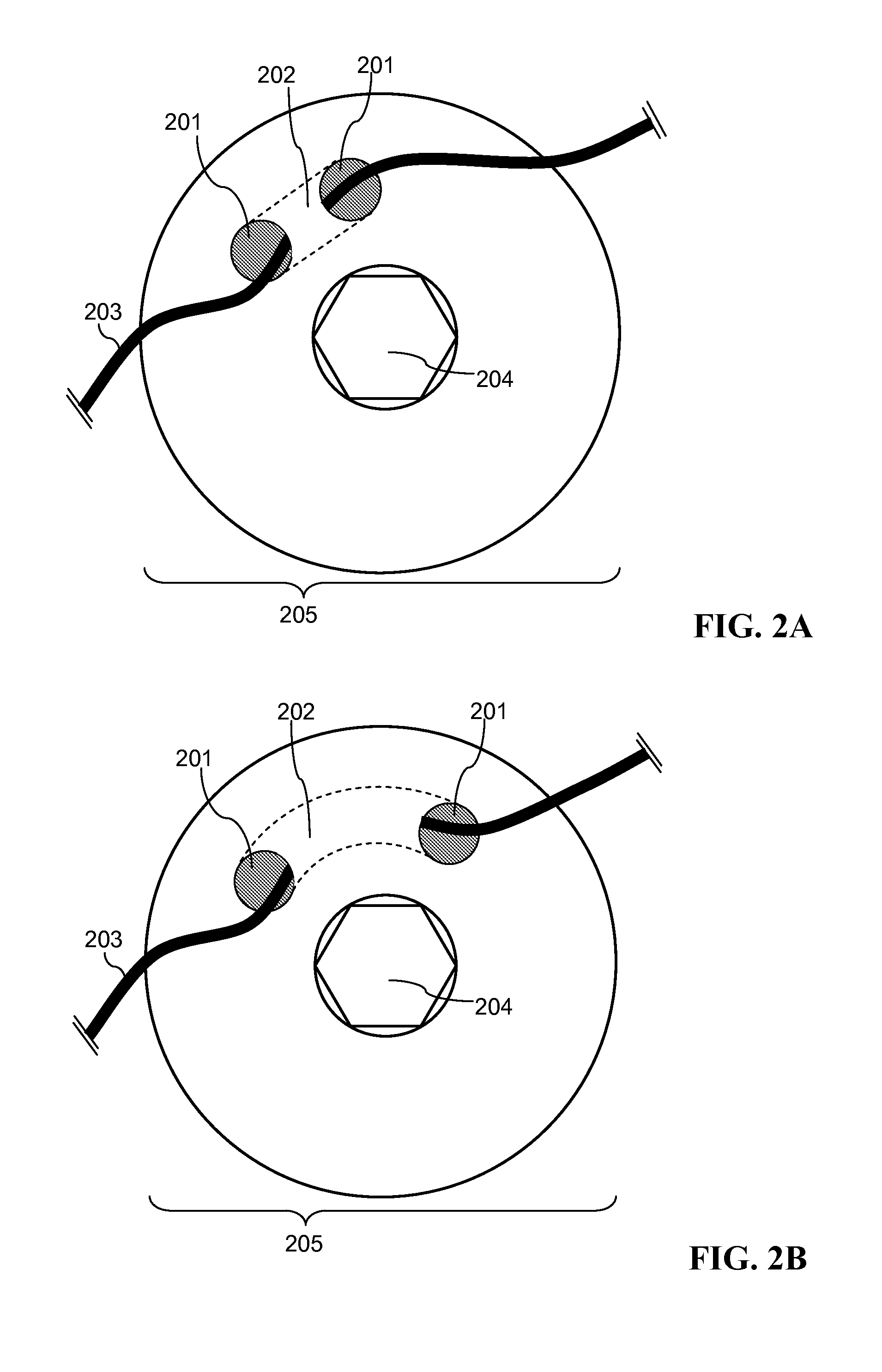Healing abutment and final abutment for use with dental implant
- Summary
- Abstract
- Description
- Claims
- Application Information
AI Technical Summary
Benefits of technology
Problems solved by technology
Method used
Image
Examples
Embodiment Construction
[0020]Embodiments of the invention provide methods and devices for improved dental healing abutments and final abutments for use with dental implants.
[0021]Certain embodiments of the invention enable a dentist to improve the handling of an abutment during insertion and removal even with the challenges presented by the inherent environment of a patient's mouth.
[0022]In particular, a patient's mouth is a confined workspace for a dentist and provides a dentist limited access when the dentist is inserting or removing an abutment. The amount of space available in which a dentist may work (e.g., access) is largely dictated by how far the patient's mandible (lower jaw) can open, as well as the size and shape of the patient's palate (roof of the mouth). Access is especially restricted in the back region of the mouth, approaching the temporomandibular joint where the molars are located. The restricted region provides not only limited work space, but also a limited line of sight and limited a...
PUM
 Login to View More
Login to View More Abstract
Description
Claims
Application Information
 Login to View More
Login to View More - R&D
- Intellectual Property
- Life Sciences
- Materials
- Tech Scout
- Unparalleled Data Quality
- Higher Quality Content
- 60% Fewer Hallucinations
Browse by: Latest US Patents, China's latest patents, Technical Efficacy Thesaurus, Application Domain, Technology Topic, Popular Technical Reports.
© 2025 PatSnap. All rights reserved.Legal|Privacy policy|Modern Slavery Act Transparency Statement|Sitemap|About US| Contact US: help@patsnap.com



